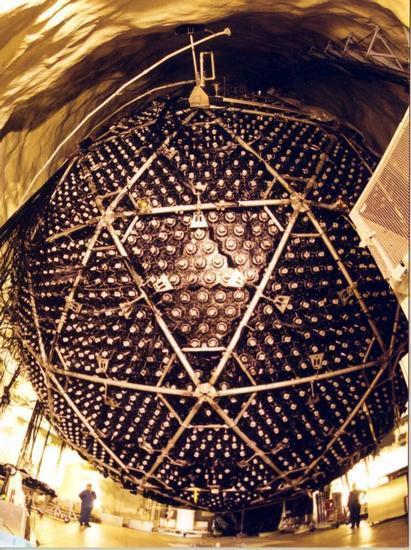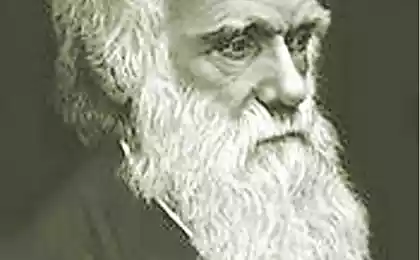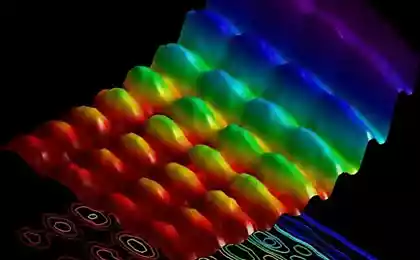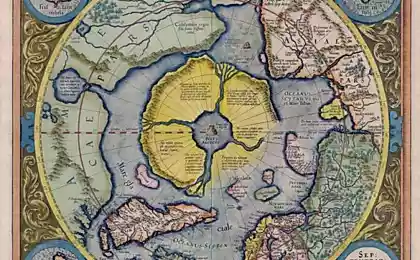493
For which he was given the Nobel prize for physics this year: neutrino oscillations
On Tuesday, the Nobel Committee announced two scientists, Takaaki Khajiit from Japan and Arthur MacDonald of Canada, Nobel prize in physics for their experiments with detection of neutrinos. Khajiit and McDonald led the two groups (observatories at opposite ends of the planet) in search of the elusive neutrinos and the solution of old problems in particle physics.
McDonald, Professor at Queen's University in Kingston, said that winning the Nobel was "very difficult." "Fortunately — he added — I have many colleagues who will share this prize with me. They did a huge amount of work to make these measurements".
Khajiit, a Professor at Tokyo University, said that to receive the prize "was kind of unbelievable." "I think the importance of that — and that's exactly — beyond the Standard model, there is physics", — he added.
What is a neutrino?Neutrinos are small elementary particles that form in nuclear reactions like fusion reactions inside the Sun or fission in our nuclear power plants. These particles independent from gravity or electromagnetism, which makes them "weakly interacting" particles. Despite the fact that every second the Sun emits trillions of neutrinos, billions of which reach the Earth, almost all pass through the planet without hitting anything.

Because neutrinos pass through almost everything to discover them quite difficult. Deep underground, built a giant particle detectors that will be able to avoid interference from cosmic rays generated in the atmosphere. These detectors consist of several large water tanks, sensors which constantly waiting for at least one interaction with a neutrino. It is hoped that the billions of neutrinos that pass through the water resevoir, at least few will collide with the nucleus of an atom of water and produce enough radiation, that it can catch the sensor.
A problem of solar neutrinosNeutrinos come in three types: electron, muon and Tau neutrinos. Electron neutrinos are most common, they are produced in the center of the Sun. Since we know the degree of fusion reactions of the Sun, we can estimate the number of electron neutrinos that the Sun produces every second.
But when we compare this estimate with our neutrino measurements on Earth, we come to a standstill. The number of solar neutrinos detected on Earth, three times less than what it should be, and for a long time scientists were puzzled.
A possible answer appeared in late 90-ies when several of the scientists have speculated that the problems stems from neutrino oscillation, the process in which one type of neutrino like electronic transformirovalsya spontaneously into another type, muon or Tau. Our detectors of solar neutrinos on Earth are configured for detection only electron neutrinos, so if two-thirds of the solar neutrinos is converted on the road to us, we will detect only a small part of them.
In 1998, the team under the leadership of Khajiit detector Super-Kamiokande obtained the first concrete evidence of neutrino oscillations. Scientists have measured the amount of muon neutrinos produced in the atmosphere as of the detector and coming from the opposite end of the Earth. The team found that the detector catches much less neutrinos passing through the Earth, across thousands of miles away than those that appear above it. This shows that many of the muon neutrinos disappear, and the best explanation is the oscillation of neutrinos.
The final proof came from the neutrino Observatory in Sudbury, where she worked MacDonald, which was the first detector of solar neutrinos, is able to detect muon and Tau neutrinos in addition to electron neutrinos. Team Sudbury quickly discovered proof of the existence of two other types, confirming that neutrinos from the Sun do transformirovalsya on the way here.
In short, this result strengthened the idea of neutrino oscillations in a physical community.
The Nobel prize this year, brought the total number of physics laureates to 201. On Monday the Nobel Committee announced the award of the Nobel prize in physiology or medicine William Campbell and Satoshi Omura for their work on drugs to combat parasites. published
P. S. And remember, only by changing their consumption — together we change the world! ©
Join us in Facebook , Vkontakte, Odnoklassniki
Source: hi-news.ru
McDonald, Professor at Queen's University in Kingston, said that winning the Nobel was "very difficult." "Fortunately — he added — I have many colleagues who will share this prize with me. They did a huge amount of work to make these measurements".
Khajiit, a Professor at Tokyo University, said that to receive the prize "was kind of unbelievable." "I think the importance of that — and that's exactly — beyond the Standard model, there is physics", — he added.
What is a neutrino?Neutrinos are small elementary particles that form in nuclear reactions like fusion reactions inside the Sun or fission in our nuclear power plants. These particles independent from gravity or electromagnetism, which makes them "weakly interacting" particles. Despite the fact that every second the Sun emits trillions of neutrinos, billions of which reach the Earth, almost all pass through the planet without hitting anything.

Because neutrinos pass through almost everything to discover them quite difficult. Deep underground, built a giant particle detectors that will be able to avoid interference from cosmic rays generated in the atmosphere. These detectors consist of several large water tanks, sensors which constantly waiting for at least one interaction with a neutrino. It is hoped that the billions of neutrinos that pass through the water resevoir, at least few will collide with the nucleus of an atom of water and produce enough radiation, that it can catch the sensor.
A problem of solar neutrinosNeutrinos come in three types: electron, muon and Tau neutrinos. Electron neutrinos are most common, they are produced in the center of the Sun. Since we know the degree of fusion reactions of the Sun, we can estimate the number of electron neutrinos that the Sun produces every second.
But when we compare this estimate with our neutrino measurements on Earth, we come to a standstill. The number of solar neutrinos detected on Earth, three times less than what it should be, and for a long time scientists were puzzled.
A possible answer appeared in late 90-ies when several of the scientists have speculated that the problems stems from neutrino oscillation, the process in which one type of neutrino like electronic transformirovalsya spontaneously into another type, muon or Tau. Our detectors of solar neutrinos on Earth are configured for detection only electron neutrinos, so if two-thirds of the solar neutrinos is converted on the road to us, we will detect only a small part of them.
In 1998, the team under the leadership of Khajiit detector Super-Kamiokande obtained the first concrete evidence of neutrino oscillations. Scientists have measured the amount of muon neutrinos produced in the atmosphere as of the detector and coming from the opposite end of the Earth. The team found that the detector catches much less neutrinos passing through the Earth, across thousands of miles away than those that appear above it. This shows that many of the muon neutrinos disappear, and the best explanation is the oscillation of neutrinos.
The final proof came from the neutrino Observatory in Sudbury, where she worked MacDonald, which was the first detector of solar neutrinos, is able to detect muon and Tau neutrinos in addition to electron neutrinos. Team Sudbury quickly discovered proof of the existence of two other types, confirming that neutrinos from the Sun do transformirovalsya on the way here.
In short, this result strengthened the idea of neutrino oscillations in a physical community.
The Nobel prize this year, brought the total number of physics laureates to 201. On Monday the Nobel Committee announced the award of the Nobel prize in physiology or medicine William Campbell and Satoshi Omura for their work on drugs to combat parasites. published
P. S. And remember, only by changing their consumption — together we change the world! ©
Join us in Facebook , Vkontakte, Odnoklassniki
Source: hi-news.ru























